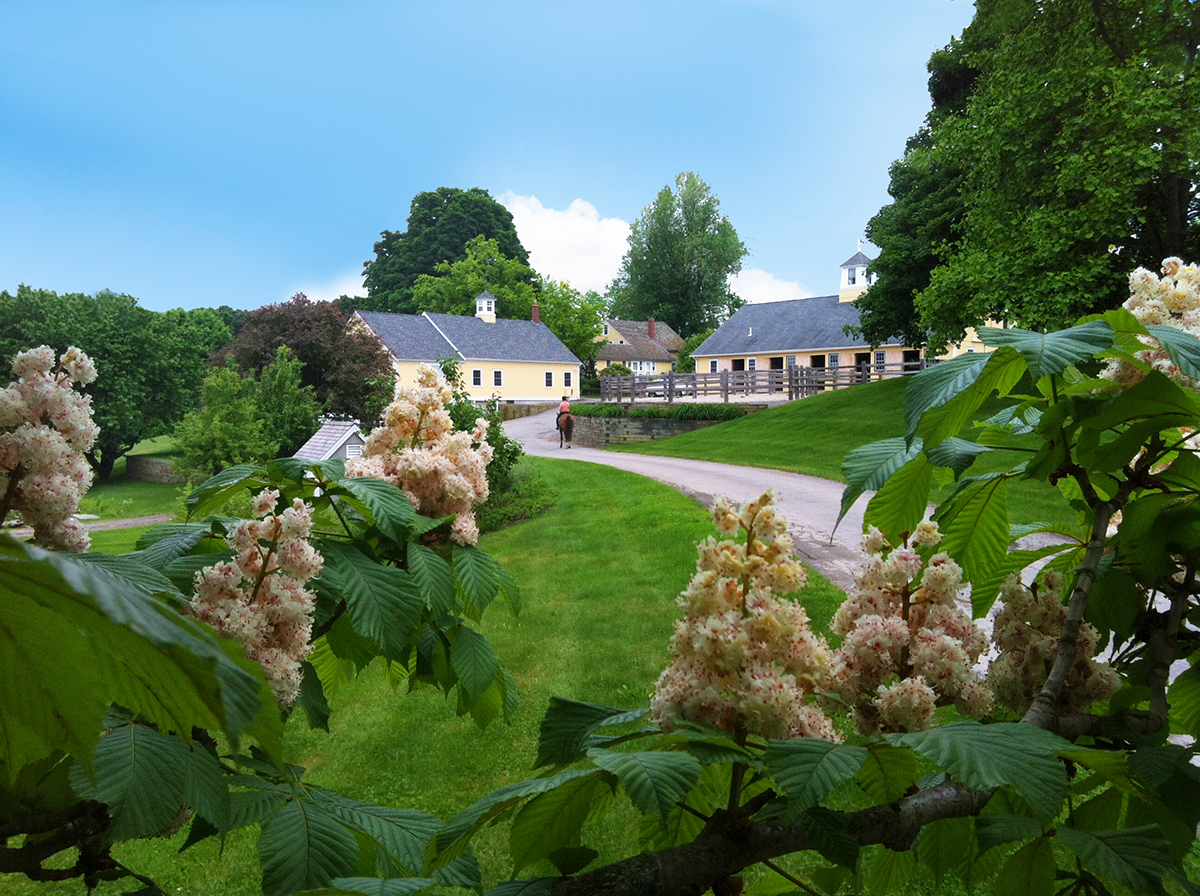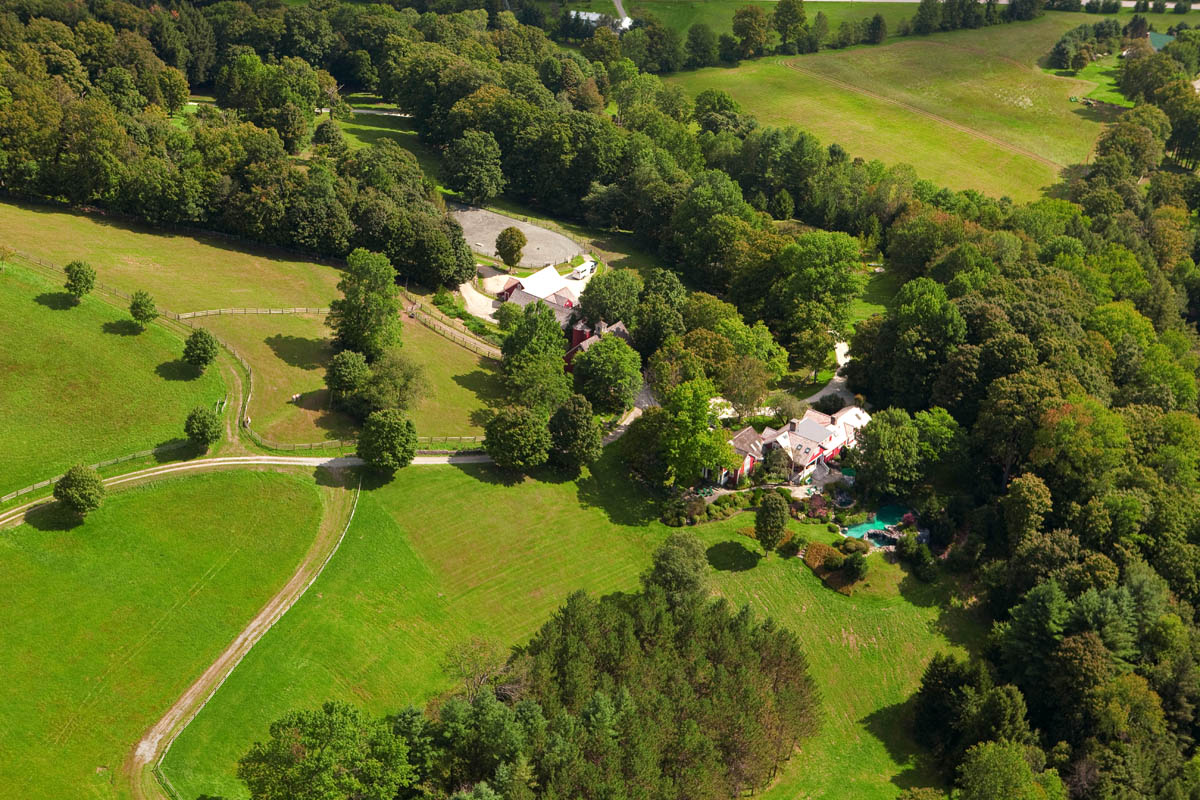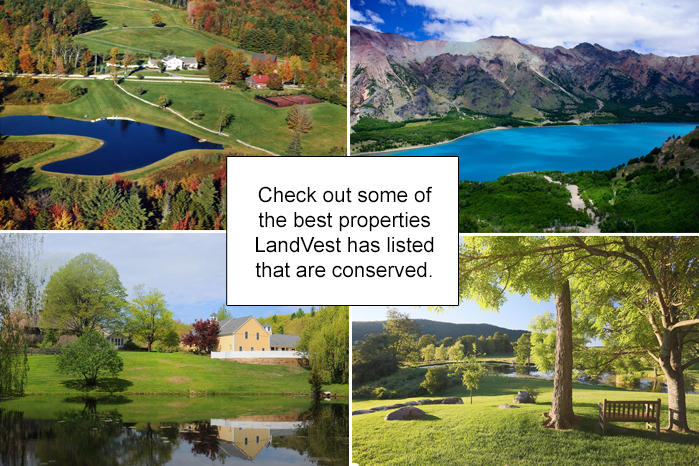This is the second in a series to help landowners and prospective purchasers understand the basics of conservation easements. LandVest helps landowners conserve their properties and leads the marketing of major conserved properties. We interview Ruth Kennedy Sudduth, Director of Residential Brokerage, and David Rosen, Director of the Real Estate Consulting Group, about the keys to understanding conservation easements.
• Why are we talking about the special qualities of conserved properties?
RKS: In New England, conservation has been a priority for major landowners for over a century. From the Rockefellers conserving huge swaths from the Adirondacks to Maine to the Pingree easements on working timberland in Maine, some of the most beautiful and productive land in New England is now conserved. Understanding conservation easements is vital to smart buying of major New England properties. Likewise, easements are a key tool for estate and tax planning for landowners.
• What should a prospective buyer of a conserved property be asking?
DAR: We touched on this in our earlier blog, Understanding What Makes Conserved Properties Special I. The key is always to understand whether the “reserved rights” section of the easement matches a buyer’s prospective uses of the property. Most well-designed easements are set up so the good stuff you’d want to do on the property is allowed, but the bad stuff (that would change the property’s character forever) is prohibited. If it’s a country estate, for example, while further development is largely prohibited, agriculture, forestry, equestrian activities are generally just fine.
• Doesn’t being in conservation hurt the value of a property?
DAR: In one sense, yes: the development value of the property can’t be realized and there is a one shot reduction in value. After that, (well-crafted) easements should preserve the values and character of a property, making it increasingly rare in a built up landscape. Also, conservation easements are flexible and owners can reserve the right for future development on portions of their property or exclude portions from the easement altogether. Communities like Harvard, Massachusetts or Woodstock, Vermont have benefited by so much conservation that property values are at a significant premium to surrounding area because the rural character of the community is protected.

RKS: In fact, some of the highest priced sales we see are of conserved properties. We closed last week on Uphill Farm, which has twice been a record sale in Woodstock, Vermont. It is conserved through a nicely-crafted easement that works well with the gentleman’s farm character of the property. Big, beautiful properties are increasingly rare, and its conservation that makes their continued availability possible. A lot of times the best property in any given market is already conserved.

• What would you tell buyers about conservation easements?
RKS: I guess first I’d say that they are a great tool – I first met David and LandVest when I was looking for advice on buying the land around my farm to keep lots of houses springing up in the fields in my view. He taught me that I could buy that land, and conserve it, using the tax benefits to significantly reduce my purchase price. It worked – I think I actually ended up ahead on my first purchase after tax. So if a buyer is looking at land that isn’t conserved, seek advice on whether conservation can help you bring your purchase cost down. Second, for land that is conserved, get good advice to read the easement from a knowledgeable broker and your attorney.
For more information on conservation easements, contact Ruth Kennedy Sudduth, rsudduth@landvest.com or David Rosen, drosen@landvest.com.
